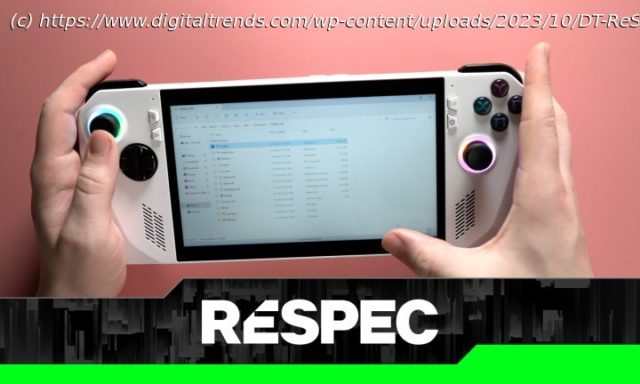Handheld gaming PCs are getting increasingly popular, and although some rely on Windows 11, that OS isn’t the future for this form factor.
I’ve used most of the handheld gaming PCs that have released this year, but I always go back to my Steam Deck. It’s not the most powerful, it has some quirks, and I still struggle with a frustrating bug that can drain the battery in minutes. But it’s still the best handheld gaming PC you can buy, and that’s due in large part to the fact that it doesn’t run on Windows like other handhelds.
It’s not that I don’t like Windows. As a PC hardware nerd, I’m well aware of both the benefits and idiosyncrasies of PC gaming. Things don’t always work the way you expect them to, and that’s just part of the process to get the best gaming experience possible. When it comes to this evolving form factor of handheld gaming PCs, however, those issues are amplified and pushed to their breaking point.We’ve been here before
When it comes down to it, the problem with Windows-based handhelds is simple: you can’t take a desktop operating system and force it onto a handheld. For as flexible as Windows is, it presents a slew of issues for handheld PCs. Overlays conflict with each other, any management options are restricted to a tiny touchscreen, and modern comforts like suspending a game aren’t even a thought. We need a dedicated version of Windows for these types of handhelds, but Microsoft doesn’t have a great track record on that front.
Microsoft has tried to make a “lite” version of Windows for decades. That’s not an exaggeration. Attempts at a mobile version of Windows date back to 2000 with Pocket PC, and since then, we have seen various forms of Windows for tablets and mobile. For the most part, these versions only saw a couple of releases on a few niche devices before dying out entirely.
The latest example of Microsoft’s attempts is the ill-fated Windows 10X. This lightweight version of Windows 10 was supposed to launch for dual-screen tablets, but it was canceled in 2021. Some features worked their way into Windows 10, and we can see remnants of the update in Windows 11’s enhanced tablet mode on devices like the Surface Laptop Studio 2.
Even with glimmers of a stripped-down version of Windows, we haven’t seen Microsoft do it successfully durin g its decades of attempts. I have no doubt that Microsoft will continue to iterate, and we might one day get the lite version of Windows that Microsoft has promised for years. Still, we’re long past the point of waiting for that to happen, and it’s time to move on.
There is one area where Microsoft has successfully adapted Windows to another form factor, though, and that’s Xbox.






